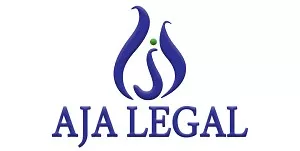The Full Bench of the Hon'ble Supreme Court of India ("Supreme Court") in M/s. Embassy Property Developments Pvt. Ltd. v. State of Karnataka & Ors. (Civil Appeal Nos. 9170-9172 of 2019) ("Embassy Property Developments") vide judgment dated December 3, 2019 decided on the following issues: -
Whether the High Court ought to interfere, under Article 226/227 of the Constitution of India, with the NCLT's order in a proceeding under Insolvency and Bankruptcy Code ("IBC"), ignoring the availability of a statutory remedy of appeal to the National Company Law Appellate Tribunal ("NCLAT") and if so, under what circumstances; and
Whether questions of fraud can be inquired into by the National Company Law Tribunal ("NCLT")/NCLAT in IBC proceedings.
Ruling of the Supreme Court
On the first issue, the Supreme Court held that NCLT and NCLAT would not have the jurisdiction to adjudicate upon disputes such as those arising under Mines and Minerals (Development and Regulation) Act, 1957 ("MMDR Act") and the rules issued thereunder. As the decision of Government of Karnataka, which is the statutory authority under MMDR Act, to refuse the benefit of deemed extension of lease is in the public law domain, it can be called into question only in a superior court which is vested with the power of judicial review over administrative action.
NCLT, being the creature of a special statute for discharging certain specific functions, cannot be elevated to the status of a superior court having the power of judicial review over administrative action. The Supreme Court further observed that a decision taken by the government or statutory authority in relation to a matter which is in the realm of public law cannot be brought within the fold of Section 60(5) of IBC.
On the second issue, the Supreme Court held that NCLT and NCLAT have the jurisdiction to enquire into questions of fraud in light of Sections 65 and 69 of IBC.
Brief facts in Embassy Property Developments:
- The Resolution Professional ("RP") had moved a Miscellaneous Application ("MA") before NCLT, Chennai praying for setting aside the Government of Karnataka order dated September 26, 2018, which rejected the RP's proposal for deemed extension of the mining lease granted to the Corporate Debtor. The MA also sought a declaration that the lease should be deemed to be valid up to March 31, 2020 and further, a consequential direction to the Government of Karnataka to execute Supplement Lease Deeds for the period up to March 31, 2020. NCLT Chennai, vide order dated December 11, 2018, allowed the MA on the ground that the same was in violation of the moratorium declared on March 12, 2018 in terms of Section 14(1) of IBC.
- Aggrieved by the order of NCLT, Chennai in the said MA, the Government of Karnataka moved a writ petition before the Karnataka High Court. As the NCLT Chennai order dated December 11, 2018 had been passed ex-parte, on the ground that the State did not choose to appear despite service of notice, the High Court relegated the matter to NCLT for fresh consideration and decision on merits, vide order dated March 22, 2019.
- NCLT Chennai, vide order dated May 3, 2019, overruled the objections of the Government of Karnataka and directed them to execute Supplemental Lease Deeds for the extended period. The Government of Karnataka moved another writ petition before Karnataka High Court challenging the NCLT order dated May 3, 2019.
- The High Court, vide order dated September 12, 2019, stayed the operation of the directions contained in the impugned NCLT order. The civil appeals (Civil Appeal Nos. 9170-9172) had been preferred before the Supreme Court by the Resolution Applicant, Corporate Debtor through RP and CoC challenging the aforesaid High Court order dated September 12, 2019.
IBC (Amendment) Ordinance, 2019
Subsequently, IBC (Amendment) Ordinance, 2019 ("Ordinance") was promulgated on December 28, 2019 which, inter alia, also amended Section 14 of IBC pertaining to moratorium. An Explanation has now been inserted after Section 14(1), clarifying that a license, permit, registration, quota, concession, clearances, or a similar grant or right given by the Central Government, State Government, local authority, sectoral regulator or any other existing legal authority shall not be suspended or terminated on the grounds of insolvency. However, there should be no default in payment of dues arising during the moratorium period.
Further, sub-section (2A) has been inserted after Section 14(2) to statutorily ensure that the supply of such goods and/or services are not terminated or interrupted during the moratorium period which the RP considers critical, in order to protect and preserve the value of the corporate debtor and manage the operations of such corporate debtor as a going concern. However, there should be no default in payment of dues arising during the moratorium period.
Section 14(3)(a), which stipulates the inapplicability of moratorium provisions to certain transactions, has also been amended to include such agreements or other arrangements as may be notified by the Central Government in consultation with any financial sector regulator or any other authority.
Does the Ordinance sub-silentio overrule Embassy Property Developments?
Though a bare reading of the Explanation to Section 14(1) and Section 14(2A), inserted vide the Ordinance, seems to suggest that the legislature has sub-silentio overruled Embassy Property Developments, the substituted Section 14(3)(a) actually leaves it open to the Central Government to notify agreement(s)/arrangement(s), like the one in Embassy Property Developments, which are to be kept out of the purview of Section 14 of IBC.
The content of this article is intended to provide a general guide to the subject matter. Specialist advice should be sought about your specific circumstances.


